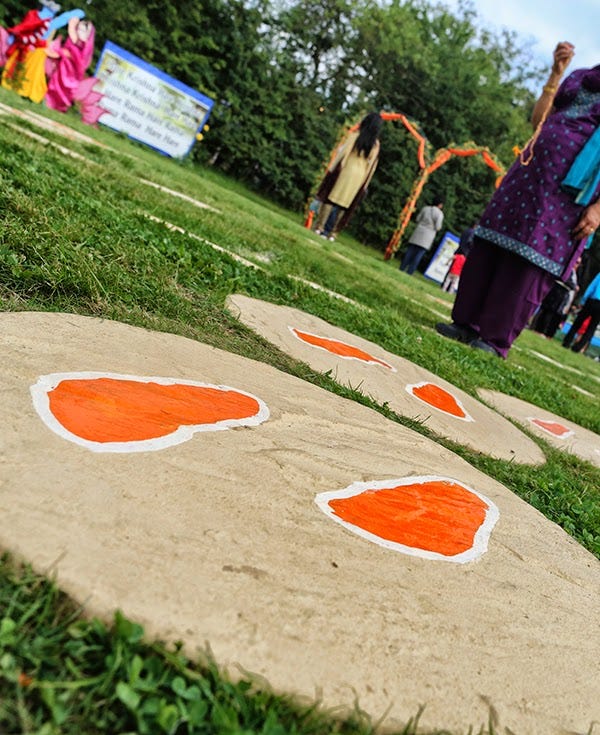Three Steps
The three steps of anything: 1) Initial enthusiasm, 2) doubts, disinterest and struggle 3) eventual reward for the committed. This seems to be the standard pattern for most things in life: studies, career, relationships, hobbies, and yes, even spirituality. The beginning of our spiritual journey is often characterised by idealism. Everything is fresh and fascinating, a whole new world to explore and unlimited opportunities to pursue. We can’t imagine any problems, since it all seems so simple and straightforward. We have finally found what we’ve always been looking for.
Unfortunately that honeymoon period doesn’t last forever. Now familiar with the externals, one is forced to dig a little deeper to maintain their commitment and dedication. What in the beginning seemed so natural, now requires a good dose of discipline and determination to maintain. As we situate ourselves in the external world of spiritual practice, the internal world of chaos begins to reveal itself. Over time, we realise we aren’t as saintly as we thought, our hearts riddled with weakness, frailty and stubborn material stains. Welcome to the stage of realism – where the gap between the ideal (of where we’d like to be) and real (of where we actually are) becomes strikingly apparent. The gap is indeed uncomfortable, and different people attempt to close it in different ways. Some quit the process altogether (forget the ideal), while others compromise the purity of their expectations (lower the ideal). Both of these approaches cheat us of the invaluable gift of pure spiritual happiness. Only the brave accept the third way: to accept the gap, admit one’s flaws, and undertake the step-by-step process to refine their character (raise the real). It requires incredible commitment, buts it’s the rewarding path that leads somewhere significant.
To tread that path we need to move to the stage of optimism. Embracing the hard work required to raise our character towards the ideal, is only possible as we develop great hope in the spiritual process we practice. We can survive for three weeks without food, for three days without water, but not a moment without hope; it keeps our spiritual journey alive. That hope is cultivated through observation (appreciation of how we’ve developed our spirituality to the current point) and application (the feelings of reciprocation and reward we feel in the current times). Nurturing unbreakable hope is the hallmark of an advanced spiritualist. For one whose spirituality is fortified by such hope, quitting is not an option. Such dedication cracks open the divine treasure-house.


